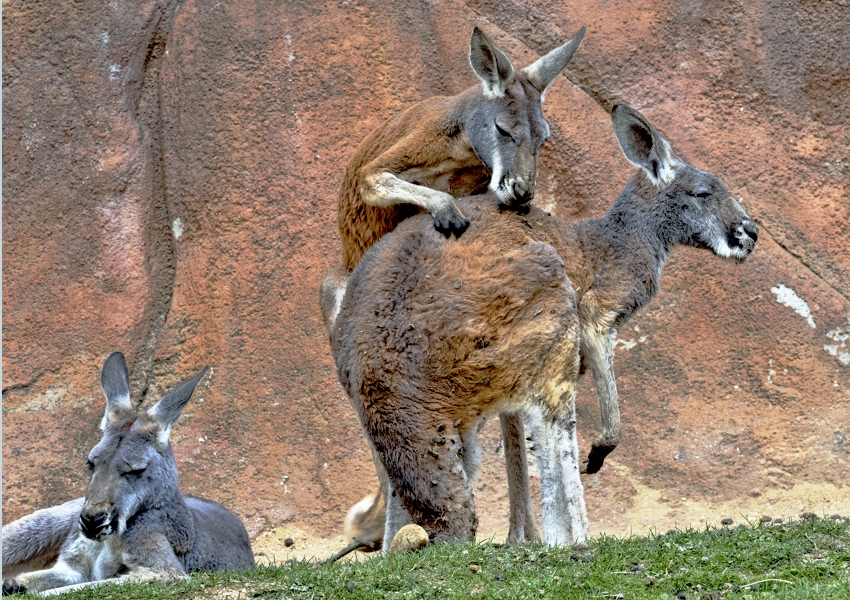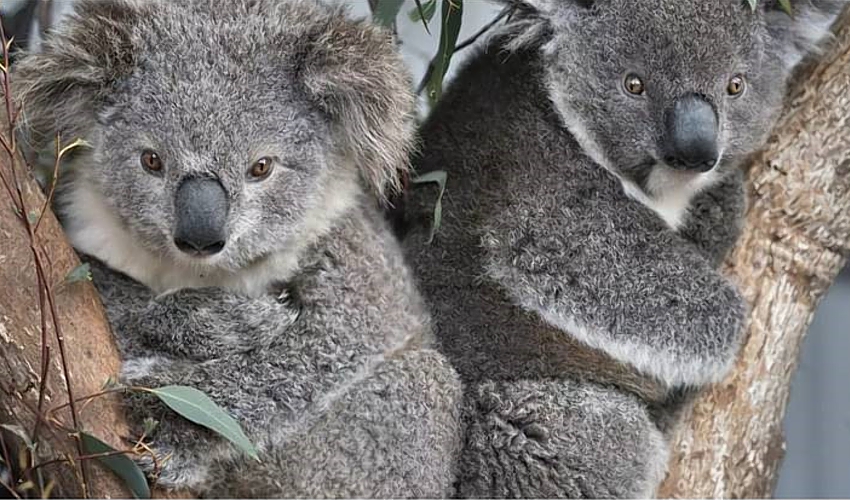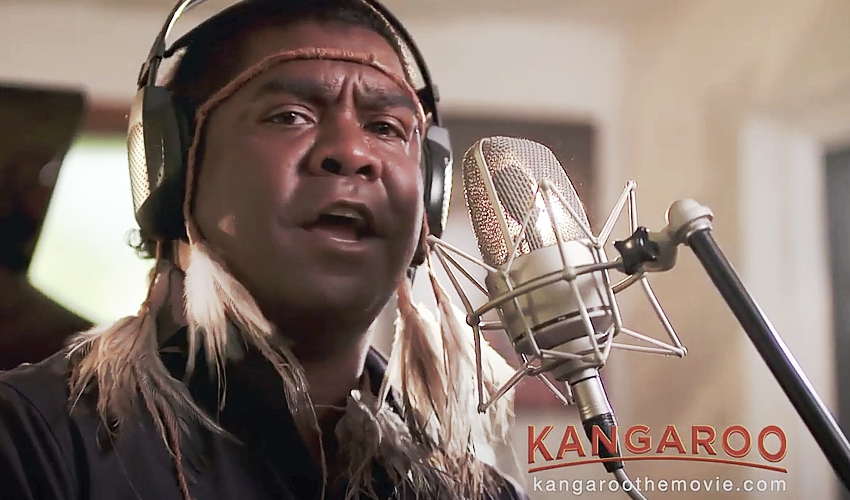New Jersey lawmakers take aim at blunting world’s largest commercial wildlife slaughter by seeking ban on sale of kangaroo parts
Senators Kean and Weinberg introduce legislation to stop sale of soccer cleats made from kangaroo skins by Nike, Adidas
(TRENTON, NJ) — Veteran state senators are seeking to make the Garden State the second state in the nation to ban the trade in kangaroo skins for soccer shoes or cleats, and other purposes. Commercial shooters kill two million kangaroos a year in their native habitats in Australia for commercial sale, mainly for use in footwear used in the world’s most popular sport.
Senate Minority Leader Tom Kean, Jr., R-21st, and Senate Majority Leader Loretta Weinberg, D-37th, have introduced the Kangaroo Protection Act to block the sale of kangaroo-sourced products such as high-end kangaroo leather soccer cleats. Years ago, California banned the sale of kangaroo-sourced products, and the Center for a Humane Economy (Center) has been working to assure that in the nation’s largest soccer market, the law is enforced and so-called “K-leather” cleats are not available to 40 million consumers there.
“Kangaroos are the iconic mammals of Australia, and it’s revolting that they are being killed for commerce in their body parts,” said Senator Kean, a long-time champion of animal welfare. “We want to use the power of nine million New Jersey consumers to halt this trade.”
“This commercial hunt does not just claim an extraordinary toll of adult kangaroos, but 400,000 joeys found in the pouches or at the feet of their slain mothers,” noted Senator Weinberg, who has partnered with Senators Lesniak and Kean on other animal welfare measures in Trenton. “That’s a bigger toll on newborn animals than Canada’s infamous seal hunt.”
The Center and sister organization Animal Wellness Action (AWA) are partnering with former New Jersey Senator Ray Lesniak and the Lesniak Institute for American Leadership on pushing Nike and other athletic companies to end their use of kangaroo skins. Senator Lesniak, who served for 40 years in the Legislature, authored a raft of animal welfare bills, including a ban on the trade in ivory and rhino horn, a halt to shark finning, and the use of wild animals in circuses.
“With my colleagues, I worked to make New Jersey one of the nation’s top states in fighting cruelty to animals and the trade in wildlife parts,” said former Senator Lesniak. “The Kangaroo Protection Act will help stop the slaughter of kangaroos and their joeys half a world away and right in line with making us the ‘the Humane State.’ I am dedicating this effort to my late wife who instilled in me an incredible passion for stopping cruelty.”
The Center and AWA announced a campaign called “Kangaroos Are Not Shoes” to convince Nike, Adidas, and other major shoe manufacturers to eliminate kangaroos from its supply chain. Diadora, the fourth largest soccer brand in the US, stopped using kangaroo skin last year.
In March, U.S. Representatives Salud Carbajal, D-Calif., and Brian Fitzpatrick, R-Pa., introduced H.R. 917, the Kangaroo Protection Act to ban any trade-in kangaroo parts throughout the United States. The U.S. is the second-largest importer of kangaroo products, valued at about $80 million a year, trailing only the European Union with total imports of $90 million. The Center and AWA last week released a short film throughout Europe, in partnership with 14 animal welfare groups there, to further narrow the market for kangaroo goods. View the 60-second short film here.
Nike, adidas, Puma, New Balance, and other manufacturers have refused to halt the slaughter of wild kangaroos (see the list here). But soccer company Diadora, and fashion houses including Prada, Versace, Paul Smith, Chanel, Stella McCartney, Gucci, and others have made the humane and ethical decision to rid kangaroo from their offerings.
“We know of no other consumer product in the world that comes from such a massive, ruthless and merciless slaughter of native wildlife,” added Wayne Pacelle, president of the Center for a Humane Economy and Animal Wellness Action. “New Jersey and the rest of the United States should not finance the ongoing slaughter of kangaroos for use as soccer equipment.”
A ban in New Jersey would prompt a couple of dozen independent soccer specialty retailers and 10 Dick’s Sporting Goods locations to swap out kangaroo-based soccer cleats for a wide array of models that do not use animal skins. A handful of restaurants or food trucks offer kangaroo steak to diners. And some pet food contains kangaroo meat.
“Adverse impacts to businesses would be non-existent but the benefit to kangaroos immense,” added Pacelle. “New technology synthetics and knits are better performing and often cost far less than the old-fashioned kangaroo leather cleats introduced in the 1960s.”
Read the state bill here. See the Kangaroo Protection Act fact sheet here. See the Center for a Humane Economy’s short film here.
Animal Wellness Action (Action) is a Washington, D.C.-based 501(c)(4) organization with a mission of helping animals by promoting legal standards forbidding cruelty. We champion causes that alleviate the suffering of companion animals, farm animals, and wildlife. We advocate for policies to stop dogfighting and cockfighting and other forms of malicious cruelty and to confront factory farming and other systemic forms of animal exploitation. To prevent cruelty, we promote enacting good public policies and we work to enforce those policies. To enact good laws, we must elect good lawmakers, and that’s why we remind voters which candidates care about our issues and which ones don’t. We believe helping animals helps us all.
The Animal Wellness Foundation (Foundation) is a Los Angeles-based private charitable organization with a mission of helping animals by making veterinary care available to everyone with a pet, regardless of economic ability. We organize rescue efforts and medical services for dogs and cats in need and help homeless pets find a loving caregiver. We are advocates for getting veterinarians to the front lines of the animal welfare movement; promoting responsible pet ownership; and vaccinating animals against infectious diseases such as distemper. We also support policies that prevent animal cruelty and that alleviate suffering. We believe helping animals helps us all.
The Center for a Humane Economy (“the Center”) is a non-profit organization that focuses on influencing the conduct of corporations to forge a humane economic order. The first organization of its kind in the animal protection movement, the Center encourages businesses to honor their social responsibilities in a culture where consumers, investors, and other key stakeholders abhor cruelty and the degradation of the environment and embrace innovation as a means of eliminating both.
For Immediate Release: May 11, 2021
Contact: Jeff Burnside at 206-512-6544 | jeff@centerforahumaneeconomy.org



